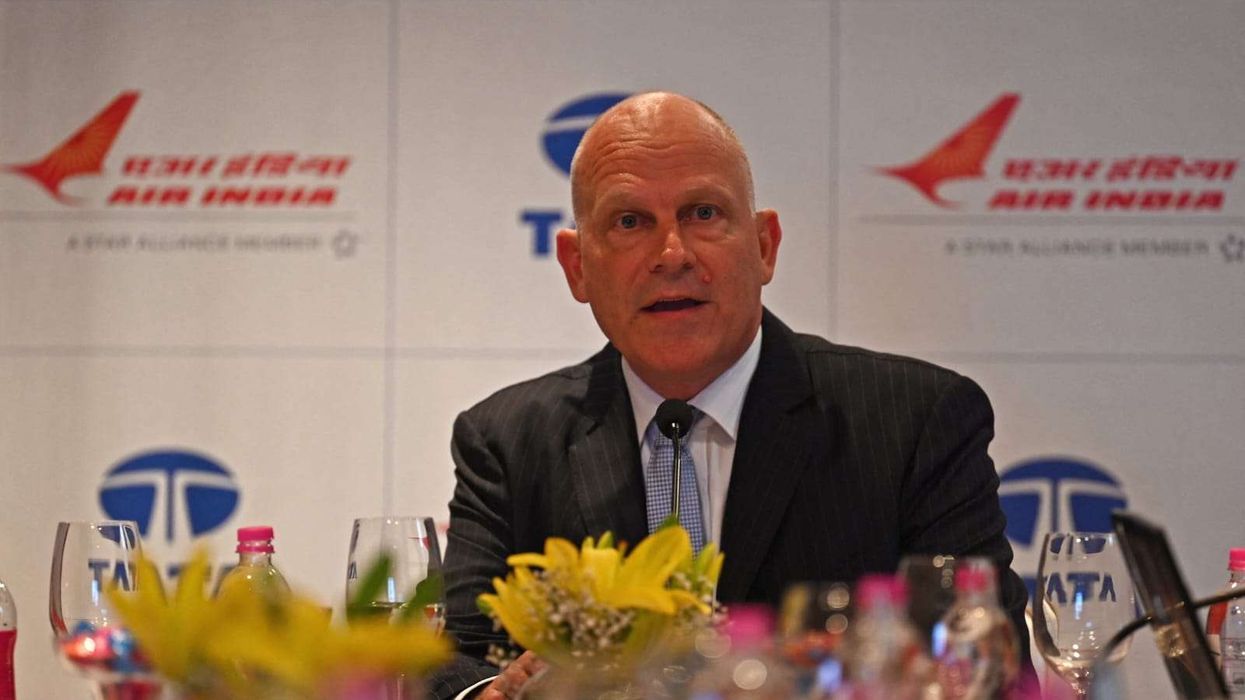By NADEEM BADSHAH
SHOPKEEPERS have slammed police chiefs and ministers for failing to treat thefts and assaults seriously enough.
The Federation of Small Businesses warned this month that criminal activity is costing the industry almost E17 billion every year and have called for more officers on the streets to tackle the crisis.
There were almost 10,000 incidents of violence and abuse in small shops last year, according to the Association of Convenience Stores. The British Retail Consortium's Retail Crime Survey found that 115 workers are attacked every day on average.
Hirenkumar Patel, who owns a newsagent in Ipswich, Suffolk, told Eastern Eye: "You never receive a response on the day you report a crime, I constantly make follow-up calls.
"The criminal knows nothing is going to happen. Previously, the police used to attend, now they want the CCTV image emailed to them of the offender - instead of investigating themselves, we have to investigate as a victim.
"It is very frustrating. They do not have local knowledge of the area, the alleyway criminals flee to.
"Police need local knowledge of known petty criminals. They do not worry about shoplifting."
Kumar added: "First, identify it is a problem and put resources into it. We pay business rates, but do not get the services or response.
"They (thieves) start with small thefts then (move) on to houses; they become hardened criminals. Also, the policy to defend my property is unclear for retailers.”
Offences - including robbery, fraud and criminal damage - affect around 900,000 small businesses each year on average.
It comes after a survey by The Union of Shop, Distributive and Allied Workers showed that over the past year, nearly two-thirds of shopworkers experienced verbal abuse and 40 per cent were threatened by a customer.
Gurcharan Harrad, the owner of Village News in Birmingham, told Eastern Eye: "You want the police to come straight away. Something should be done about it, but it is more about the government.
"There are not many police around due to the cuts; if there were more bobbies on the beat you wouldn't have it.
"You don't see them at all now, even special constables - if they are there up and down, the thieves would think twice.
"It gives them a buzz stealing, the next time they might go for the ATM in the shop with a rope, that is what it leads to.
"They start with little shops, then target bi er shops. It makes them feel invincible, so it's important to address it before it escalates!'
Preet Kaur Gill, Labour MP for Birmingham Edgbaston, said: "Nobody should go to work fearing for their safety.
"The government must act now to protect the hundreds of thousands of shop workers who experience abuse and threats of violence on a daily basis.
"The recently passed Offensive Weapons Bill gives retailers greater responsibilities to uphold the law on what is sold and to whom.
"However, the government also needs to ensure that shop workers are given stronger, appropriate protections and that those who threaten and intimidate shop workers are punished."
Recent incidents include post-master Pavan Parameswaran being beaten up by an axe-wielding robber for £5 at his shop in Kent.
Parameswaran heard an employee scream for help as she was threatened by masked Michael McCluslcy and suffered cuts and bruises when he tried to intervene. Serial robber McCluslcy, 31, was jailed for 10 years in June after being caught on CCTV targeting post offices and bookmakers.
Mike Cherry is national chairman of the Federation of Small Businesses. lie said: "These figures come before other indirect costs such as store closures and staff absences are even taken into account, meaning the £17 billion figure is estimated to be far higher.
"It's vital the government, especially the incoming new administration, help plug the multi-billion pound black hole that is sapping income from small firms and deal with business crime, which is serious, but often overlooked.
"A major step the government needs to make is to bring police numbers in England and Wales closer to the European average of more than 300 officers per 100,000 people. At the moment, there are only 212 per 100,000.
Home secretary Sajid Javid pledged more police support to tackle the issue during a meeting with the Federation of Independent Retailers in June in Cumbria.
Mike Mitchelson, from the retailers' organisation, said: "He brought up the subject of 'low value' shop theft, adding that he believed this should be given greater priority by the police.
"Mr Javid also told me that he wanted to see more policemen back on the beat and vowed to continue to push for increased funding for the police to help improve retail safety!'
A Home Office spokesman said: "Shop workers have the right to feel safe at work.
"For them to experience violence or abuse is totally unacceptable, that is why we launched a call for evidence in April to enable us to learn about the scale and extent of this issue and to inform our response.”











